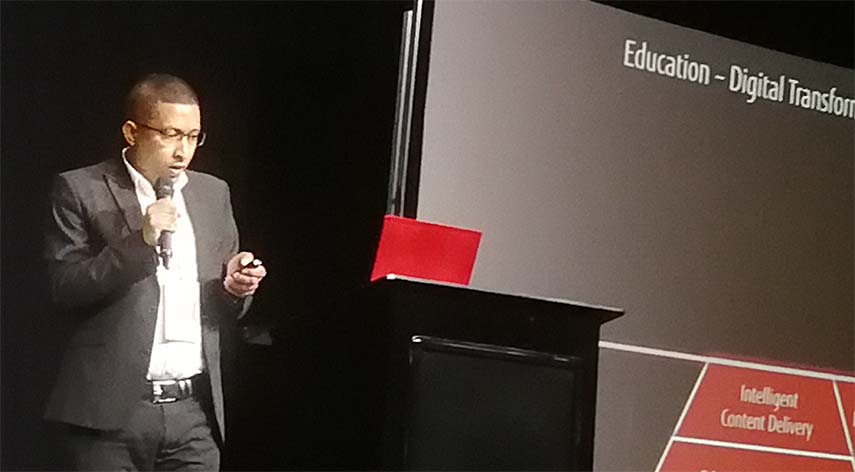Kathy Gibson is at the E-Learning Summit in East London – Job losses are inevitable if learners are not equipped with the skills they need to compete in the digital world.
“Technology is key to empowering learners to live with the fourth industrial revolution,” says Abdul Moosa, chief technology officer of Fujitsu.
The new multi-billion dollar companies emerging in the world today are based on technology, often relatively simple apps, he points out, and learners who are not able to compete in this world will be disenfranchised
“Digital transformation is set to revolutionise education in the fourth industrial revolution, and promote economic development,” says Moosa.
He points out that there have been a lot of initiatives from government and private sector to advance education.
“We need to empower learners today for the future,” he stresses.
But to ensure the education initiatives bear fruit, a digital framework is required, which is why Fujitsu came up with the Edu-Smart Centre that delivers digital content to learner without having to wait for the construction of brick-and-mortar schools.
Content is the foundation of e-learning, but the real advantages are brought to bear if it can be delivering in a way that makes sense for each learner. Intelligent content delivery is key to this.
The framework has to work closely with the Department of Basic Education to empower learners at schools; and with further education and training (FET) colleges and the private sector once they leave schools.
ICT skills development, delivered through ICT Hubs and Innovation Centres, help to equipment learners who come out of tertiary institutions and equip them for jobs in the fourth industrial revolution.
He stresses that one company cannot do everything, but a network of partnering is required.
The framework is supported by partners like Vodacom, Microsoft, Sizwe and, of course, Fujitsu.
While the Edu-Smart Centre looks like any other container classroom, there is much more to it than meets the eye.
Each centre brings together the physical classroom, connectivity, content, teacher skills, maintenance and support.
The concept was developed specifically to meet needs of the Eastern Cape Department of Education, and came out of discussions at a previous E-Learning Summit.
Each full contained classroom can accommodate up to 40 children, and includes environmentally friendly toilets
The solution targets primarily the rural and peri-urban communities – and can be delivered within just 10 weeks.


